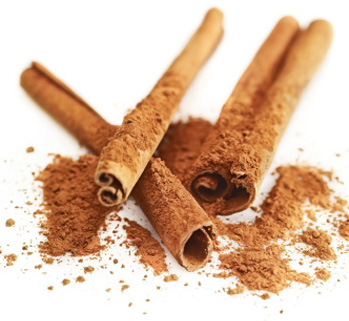The health benefits of cinnamon are many. It is a heavenly spice that seems to add the missing piece to so many recipes.
True cinnamon is called Cinnamomum zeylanicum (Ceylon), and originates from the island Sri Lanka (formerly called Ceylon). Ceylon cinnamon is harder to find in the US but is gaining popularity in Europe and South America.
While known for its culinary purposed the health benefits of cinnamon are not well known. Yet, it held in very high regard for relieving arthritis, coughs, and sore throat and packed with antioxidants.
Let’s take a look at the health benefits of cinnamon.
Anti-clotting properties:
This potent spice contains a chemical called cinnamaldehyde (volatile oil) which has shown benefits for blood platelets. Blood clotting is essential when an injury is sustained, but it can affect blood flow if the platelets group together too much. Cinnamaldehyde helps prevent the excess clumping.
It also inhibits the release of arachidonic acid from various platelet membranes, which is an inflammatory fatty acid that reduces the formation of the inflammatory messaging molecule known as thromboxane A2.
The essential oils contained in cinnamon have antimicrobial properties and may stop various types of bacterial and fungal growths.
Blood sugar benefits:
One of cinnamon’s most impressive qualities is its ability to control blood sugar. A study published in the American Journal of Clinical Nutrition confirmed that cinnamon sped up the emptying of the stomach, resulting in lower blood sugar after eating.
Cinnamon has also shown benefits of persons with type 2 diabetes, by improving insulin response, therefore regulating blood sugar.
Brain function:
The sweet scent of cinnamon alone has shown the ability to boost brain function. A study led by Dr. P. Zoladz showed that when participants chewed cinnamon gun or simply smelled cinnamon, visual motor speed, virtual recognition memory, and overall cognitive functions were boosted.
Tip: simmer cinnamon in a pot or make a cinnamon room air freshener and let the aroma fill the house.
Calcium and dietary fiber:
Cinnamon is an excellent source of calcium and dietary fiber. When calcium and fiber are combined, they bind with bile and remove it from the colon, promoting colon health. When bile is removed, the body must break down cholesterol to create new bile, which can lower levels of cholesterol in the blood.
High cholesterol is considered a major risk factor for heart disease.
Cold & flu and winter infections:
Cinnamon has a warming effect and helps the body release toxins through sweating.
It stimulates blood flow and circulation and enhances perspiration.
It is also armed with antiviral, antibacterial, and antifungal properties and fights germs and pathogens that cause colds and flu.
It is a key spice for cold and flu season.
Tip: Steam bath: Add a few drops of the essential oil in a bowl of hot water is excellent for head colds, sinusitis and for relieving coughs and chest infections. Tea: Simmer a stick of cinnamon, 2 cloves in a cup of water for fifteen minutes.
Add 1tbsp of raw honey and 1/4 tsp of turmeric
This tea will help fight cold and flu and winter infections.
Weight loss:
Cinnamon is a fat burning spice.
It stabilizes blood sugar levels and increases the metabolism of glucose. Since high blood sugar levels can lead to increased storage of fat, cinnamon helps prevent this.
Cinnamon improves insulin function. Thus, you lose weight.
Tip: Add cinnamon to coffee, tea, smoothies, or soups.
For an apple cinnamon water recipe.
Note: None of the information in our website is intended to diagnose, treat, cure or prevent any illness or disease. The content on our website is for educational purposes only.
REFERENCES:
1. “Effect of Cinnamon on Postprandial Blood Glucose, Gastric Emptying, and Satiety in Healthy Subjects.” NCBI. U.S. National Library of Medicine, n.d. Web. 26 Nov. 2013.
2. “Antibacterial Activity of 11 Essential Oils against Bacillus Cereus in Tyndallized Carrot Broth.” NCBI. U.S. National Library of Medicine, n.d. Web. 26 Nov. 2013.
3. “Cinnamon Improves Glucose and Lipids of People With Type 2 Diabetes.” Diabetes Care. Diabetes Care, n.d. Web. 26 Nov. 2013.

















